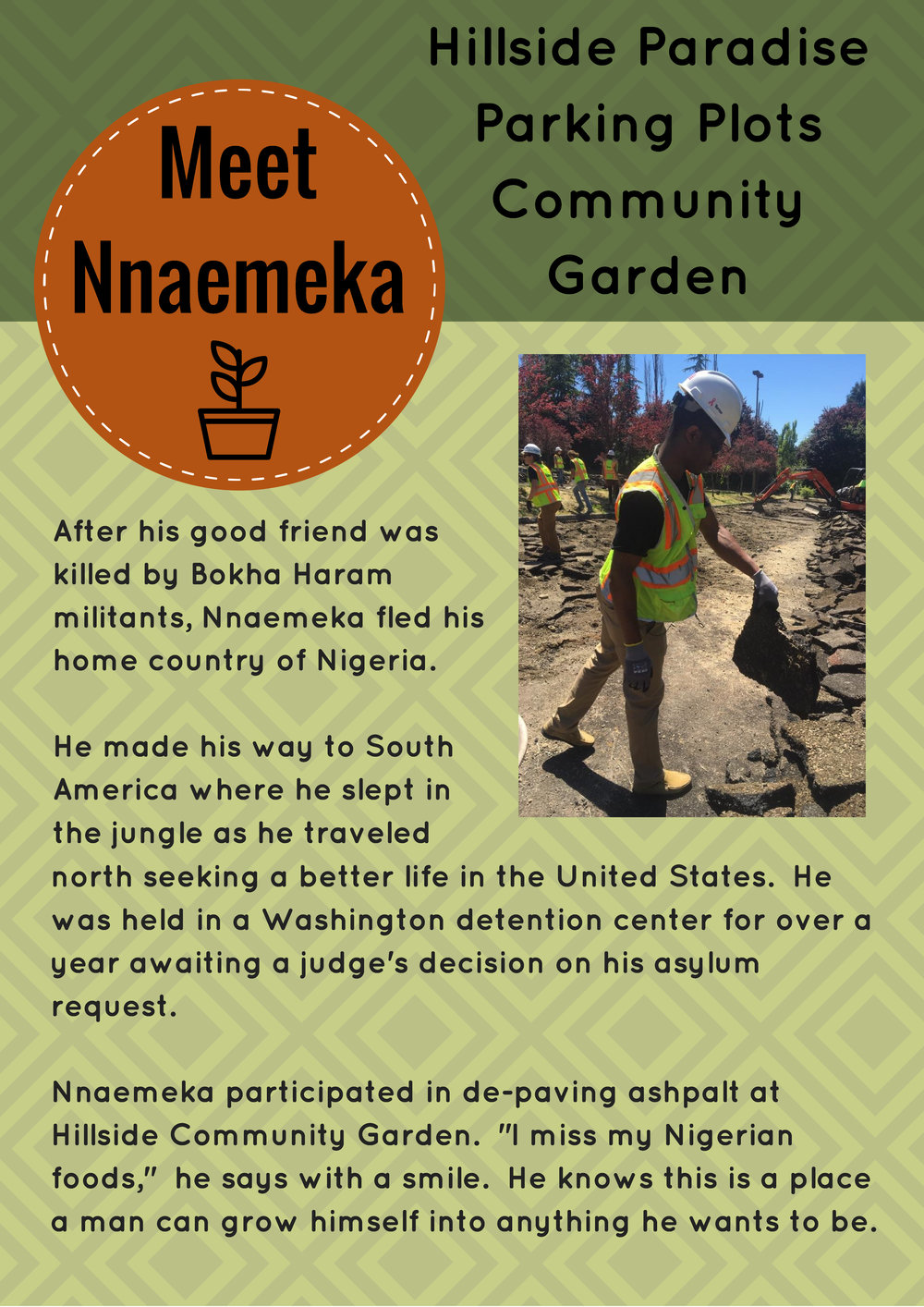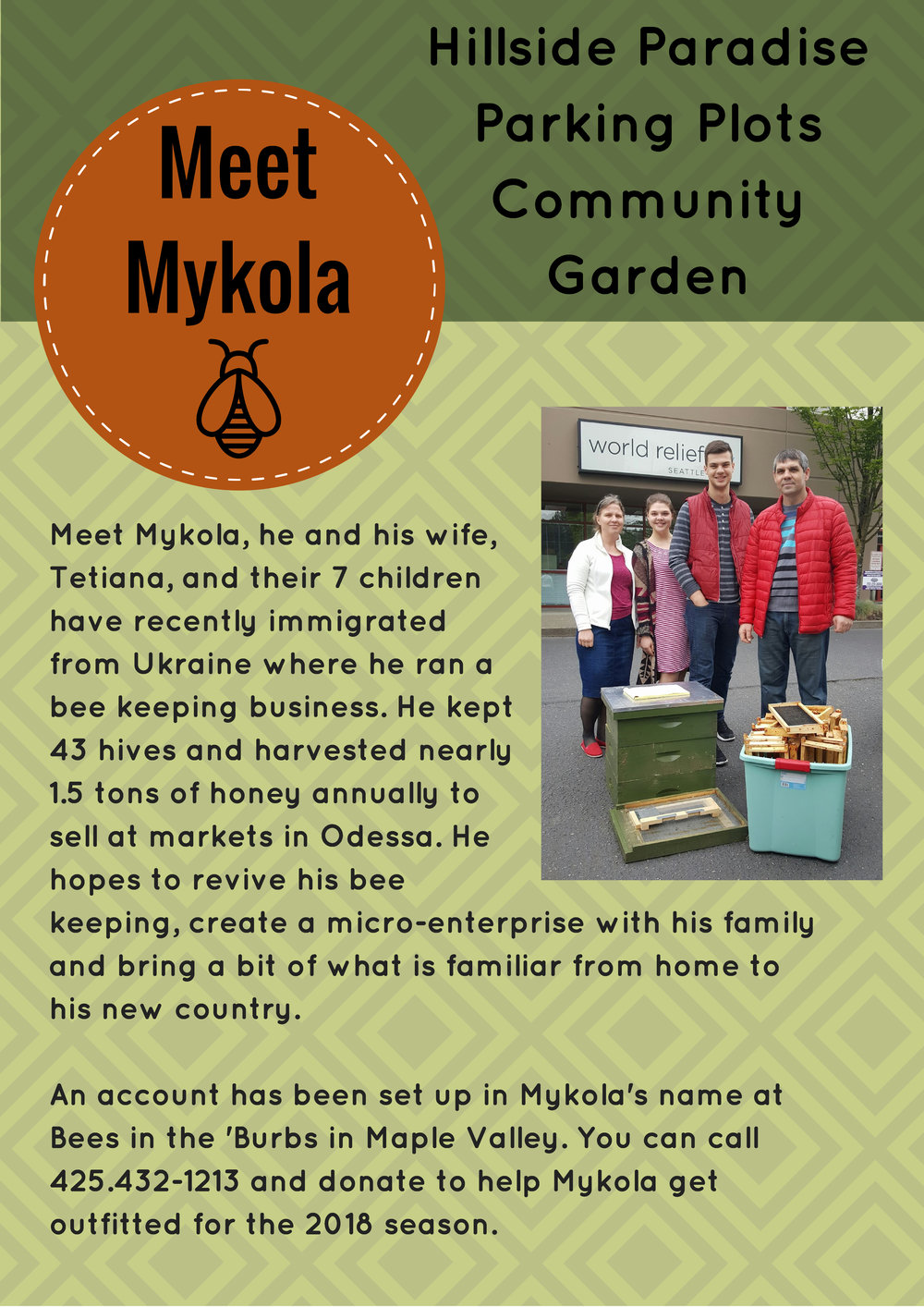Kent
World Relief Seattle Creating a Sense of Community Belonging

By Camilo McConnell
As Hannah and I drove into the Hillside Church in Kent, the rain that started as a drizzle began to descend more rapidly.
We were greeted by Tahmina Martelly, the project manager and main source of energy behind the Hillside Paradise Parking Plots Community Garden. Her organization, World Relief Seattle (WRS), supports refugees’ and immigrants’ resettlement transition into a new home in King County. Behind her were the early stages of an exciting project that is a partnership of WRS, Hillside Church, King Conservation District and Construction for Change. WRS had long wanted to transform a space into a community garden —and this underutilized parking lot turned out to be the perfect location.
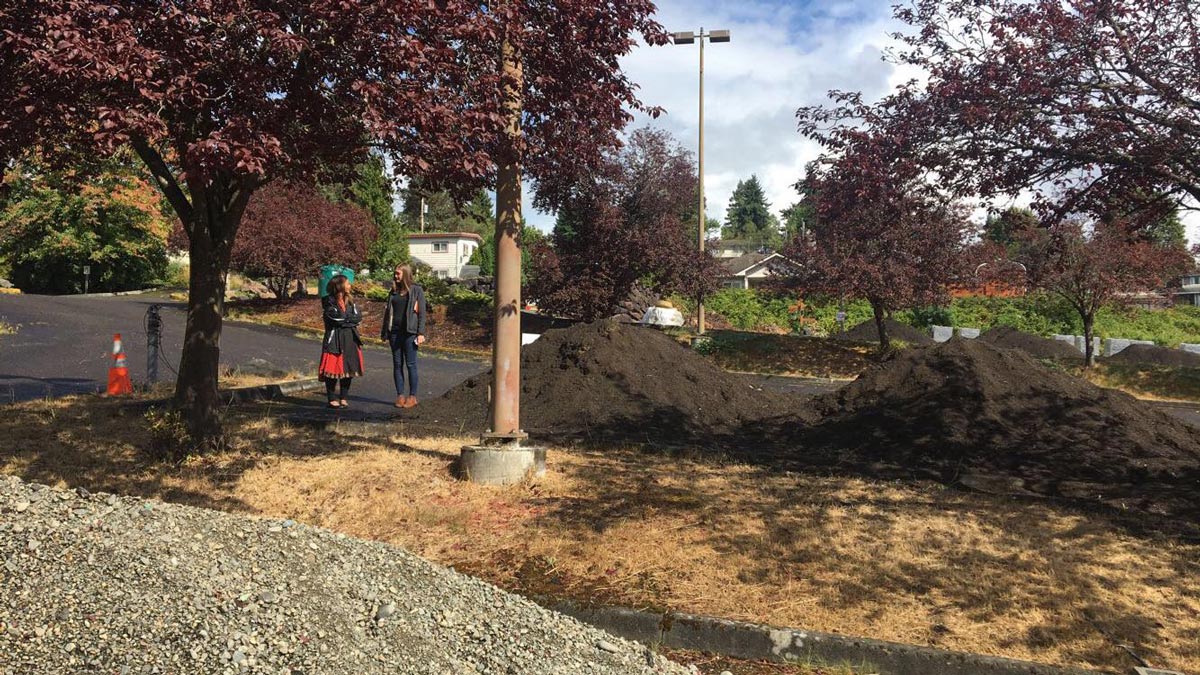
Photograph by Camilo McConnell
Photograph by Camilo McConnell
What makes Hillside Church the perfect location for a community garden is its long-term relationship with World Relief Seattle and the refugee and immigrant population, as well as its support of the vision of WRS to see the relationships between food access, religion, culture and education. This community garden is at the heart of a food desert. The U.S. Department of Agriculture defines food deserts as areas “where at least 20 percent of people earn below the poverty lineand 33 percent live more than a mile from a supermarket (10 miles in rural areas).”
Since many new immigrants and refugees do not have access to a car, getting groceries can be a daunting challenge. In addition, produce is costly and can quickly use up the limited funds. Located on a bus route in the East Hill neighborhood of Kent, Hillside Paradise Parking Plots Community Garden tries to fill the void of making food accessible and providing a space where refugees and immigrants can grow culturally-relevant food.As Tahmina described it, community gardens provide a space to “connect to community, connect to the soil, connect to food –and make it feel like home.”
The vision for this project is on its way to becoming reality. Areas of concrete were depaved, cinderblocks were installed to delineate 44 plots and six ADA plots, gravel was added, and soil is on site ready to fill the beds for planting. Hügelkultur beds installed last Spring serve as a preview of the lush and diverse garden to come –with youth, WRS Sewing classes and others planting different crops in these containers and harvesting together.Hung up near these beds is a poster with a design developed by Stone Soup Gardens and the community for the future garden. This visible design serves as a reminder of the tremendous work that has already been completed, as well as the extensive work that still needs to be done.
Providing the space for the garden, though, is just step one. There is also a tremendous opportunity for engagement and education with the refugees and the youth. The community space will play a significant role in developing social ties between neighbors, and motivate people to connect with their fellow community members. In addition to learning about how to garden in this new climate, WRS will also work with gardeners on cooking with this produce in a healthy way. The kitchen at Hillside Church plans to be renovated for use as a teaching/commercial kitchen. The new kitchen will be used to teach kids and parents how to eat healthy and how to use some of the food they have grown in the garden.
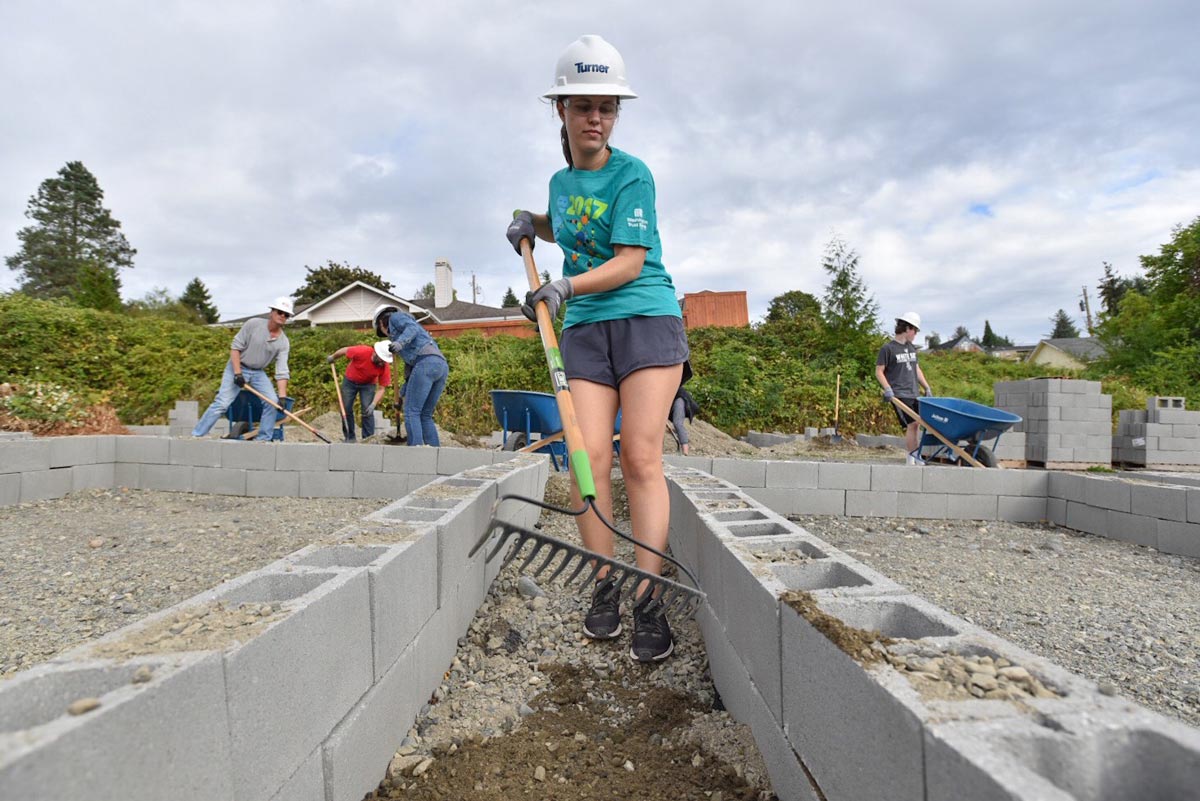
Photograph by Hannah Letinich
The community space will also feature many green infrastructure components including water catchment from the metal roof and filtration for parking lot run-off through a combination of retention ponds, rain gardens and cisterns. Students will learn about how the green stormwater infrastructure features of the site can mitigate the negative effects of runoff. As areas like Kent continue to be urbanized at a rapid pace, it will be important for students to learn about how green spaces can help cities deal with increased runoff from impervious surfaces. The Puget Sound Cities team is excited to be able to partner on aspects of the green infrastructure features of the project, through funding support from The Nature Conservancy’s North America Cities Strategic Small Grants.
Photograph by World Relief Seattle
As we exited the Hillside Church, the rain had passed and we were greeted by sunny skies. I remembered what Tahmina had said earlier, “it’s food, but it goes beyond food.” What gets lost in a story about gardens is the immeasurable connection between food and place. Whether we move from place to place by choice or by circumstance, we are inextricably bound by the places we were raised. When you come to a new country, you must hold on to the things that ground your sense of place and culture –food is one of those things. When given the opportunity to grow food that is native to where you are from, it can make an unfamiliar land more welcoming.
The day to day uncertainty of being a refugee and immigrant can feel more manageable through the visceral feeling of smelling and tasting familiar food. By creating this community garden, Hillside Church and World Relief Seattle are giving refugees and immigrants a renewed sense of belonging.
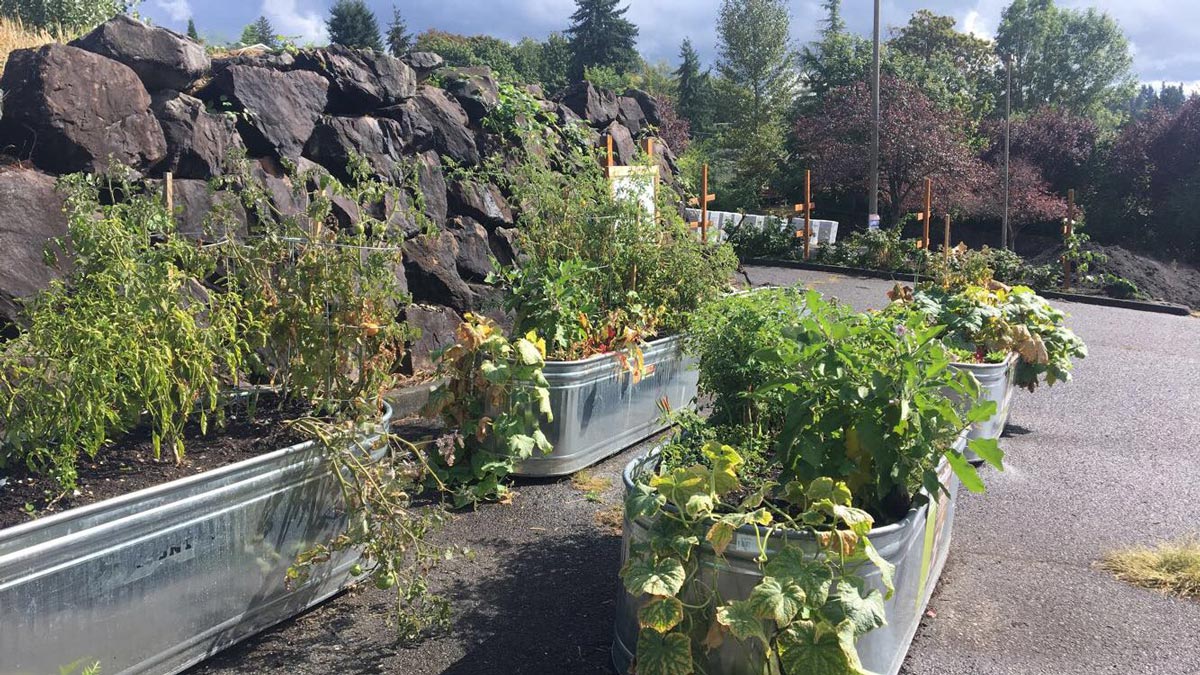
Photograph by Camilo McConnell
Subscribe to our e-mail list.
Stay up-to-date on how we are building a movement around nature in cities - including the latest stories from the blog and upcoming events.
© Kevin Arnold


